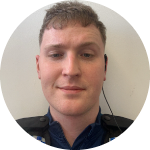
|
||
|
|
||
|
||
|
Cuckooing |
||
|
Cuckooing is when criminals take over someone's home to use it as a base for crime. The victim's home may be used for: dealing drugs storing weapons sex work other illegal activities By using the victim's home, the criminal hopes they can avoid the police. Victims of cuckooingCriminals usually target vulnerable people. This may be: someone with a drug or alcohol problem someone with money troubles someone with a mental health issue or disability an elderly person How it happensThe criminal often gives the victim something first. This could be money, drugs, or help. Later, they convince the victim to let them use their home. They may do this through intimidation or as part of a friendly relationship. Once inside the home, the criminal usually becomes more aggressive. They take control, and other criminals may visit or stay there. The situation may become so bad that the victim no longer wants to be in the home. The criminal may try to make the victim do things, like sell drugs. The victim may feel too frightened to tell anyone. They may still care about the criminal and see them as a friend. Signs to watch forSome of these things could be a sign of cuckooing. The victim may show: a change in mood a change in behaviour, for example, less contact with family, friends or neighbours a change in routine a change in appearance, for example, an injury, weight loss or not taking care of how they dress At or around the home, you may notice: lots of visitors bikes and cars always arriving or parked nearby antisocial behaviour graffiti or damage litter such as alcohol bottles or cans drug-related items such as syringes, foil or cling film Reporting it to the policeWhen to call 999
Call 999 now in emergency situations like these: there is an immediate danger to life someone is using violence or is threatening to be violent a crime is happening right now and the suspect is still at the scene If you’ve pre-registered with the emergencySMS service, use our textphone service 18000 or text us on 999. Call 999 BSL to use a British Sign Language interpreter. If it's not an emergencyYou can report it: by calling 101 Report anonymouslyYou can report anonymously via the Crimestoppers website or by calling 0800 555 111. SupportIf you'd prefer to talk to someone else before reporting it to the police, there are people you can call. Victim Support is a national charity that gives confidential advice. If you or someone you know is feeling distressed, contact the Samaritans. The NSPCC has a helpline if you’re concerned about a child.
Kind regards,
Monkmoor & Sutton Safer Neighbourhood Team | ||
Reply to this message | ||
|
|



